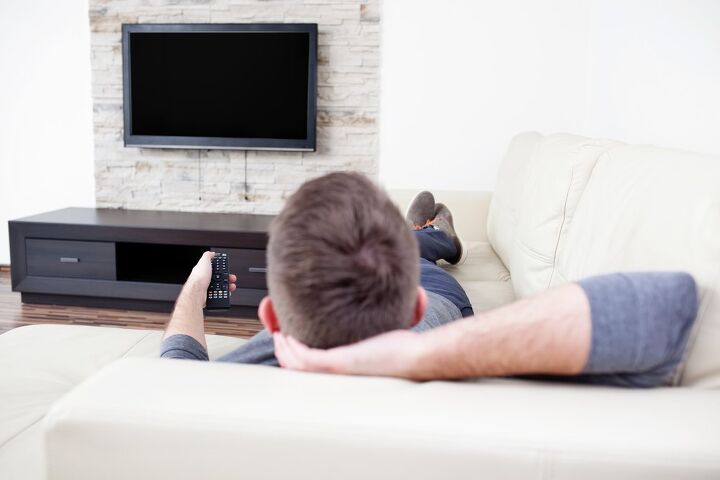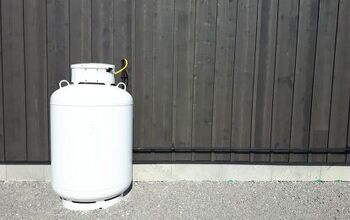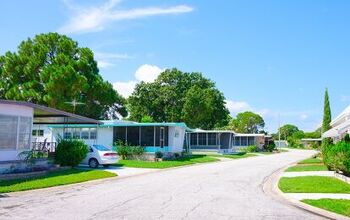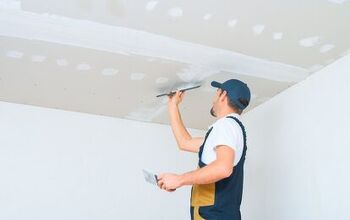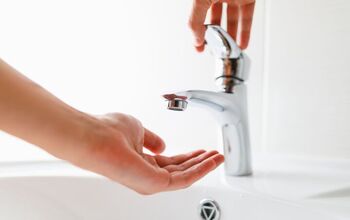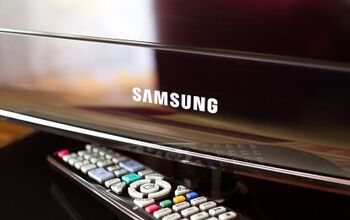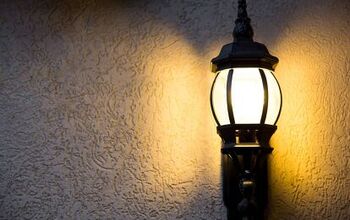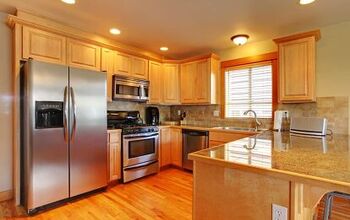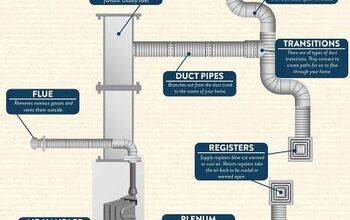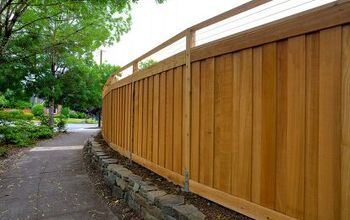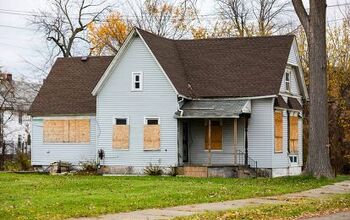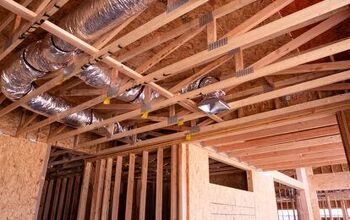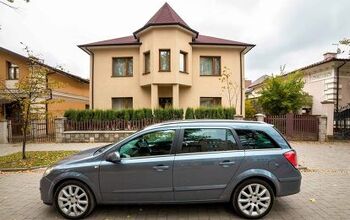How Long Do TVs Last?

In a perfect world, your TV would last forever. Just like any electronic device, a TV eventually fails and we must replace it. Luckily, modern TVs are better than ever and they last a long time. So, how long do TVs last?
The average TV lasts for 7-10 years, but they can last longer. You can expect your TV to last for at least 100,000 hours, unless it experiences a power supply failure. A TV is more likely to fail early on if your home experiences a power surge or if you mount the TV in a spot with direct sunlight.
Buy a humidity detector to make sure the humidity level in your home is between 30% and 50%. Otherwise, too much moisture in the air can damage your TV and it will break in no time. Follow along as we explore how long TVs last and highlight common reasons why they fail.
How Many Years Do TVs Last?
Typically, TVs last 7-10 years or longer. It ultimately depends on the condition, brand, usage, and model of the TV. For example, popular TV brands like LG and Samsung have great reputations for longevity.
That said, a less-known brand that uses cheaper materials may not produce TVs that are as durable. You’ve likely noticed that most TV brands don’t provide a guarantee that it will last for a specific timeframe. That’s because there’s ultimately no way to know how long it will last unless the company monitors your usage.
The 5 Most Common Reasons Why TVs Fail
Whether it's a power surge or too much moisture, several things can make your TV fail. Freak accidents are rare, but you never know when a storm or even an overloaded circuit can fry your TV. Check out the 5 most common reasons why TVs fail over time.
1. Long-Term Use
You will notice problems with your TV after years of heavy use. This is natural, and there’s no real way to avoid it. The average TV can last for at least 100,000 hours of use, but it depends on the brand and settings.
For example, you can strain your TV more if you set it to the highest brightness for its lifespan. Some flat-screen TVs will only last 60,000 hours if you max out the brightness. The more often you use your TV, the more likely it is to fail earlier than it would with moderate use.
2. Power Surges
Power surges can damage and destroy any electronic device, and that includes TVs. Surges are mostly common after storms, but overloaded circuits can also cause them. For example, power surges are likely to occur if you plug in too many high-power appliances and devices on one circuit.
This is common for people who plug a washing machine and dryer into the same circuit as a TV and gaming console. The energy will put too much of a demand on the circuit and it may cause a power surge. Power surges often damage the capacitor and power supply, which can render your TV useless.
3. Excessive Heat
Electrical devices are susceptible to extreme heat. Excessive heat overloads both the screen and electrical components within a TV. That’s why you should never mount a TV in a room that gets direct sunlight.
Over time, the screen will weaken and it can eventually crack from prolonged exposure to sunlight. Your TV can also overheat if it doesn’t have enough ventilation. TVs have vents on the back that emit heat. Check the back of your TV and you will notice that hot air comes out on either side.
If your TV is cluttered in the back or too close to the wall, the hot air will have difficulty escaping. The same principle is true for laptops, which can also overheat if the vents are blocked. Keep your TV at least a couple of inches away from the wall, so it doesn’t overheat.
4. Moisture
Moisture is an enemy to any electrical device, and it can shorten a TV’s lifespan. While you’re unlikely to spill water on a mounted flat-screen TV, the moisture in the air can still damage it. For example, you can break your TV if you put a humidifier or essential oil diffuser too close to it.
You can even unknowingly damage your TV if your house is naturally too humid. It’s a great idea to keep a humidity detector in your home. Not only will this help you protect your TV and devices, but it can also help your respiratory health.
A humidity detector can show the humidity level throughout your home. Excessive humidity or dryness is bad for people with allergies and respiratory problems. According to the EPA, the ideal indoor humidity level is between 30% and 50%. You may need to invest in a dehumidifier if the humidity level in your home is too high.
5. Impact
It’s no secret that slamming something into a TV will break it. Accidents happen, but it’s catastrophic when something hits a TV screen. Not only can this break the screen, but it may damage the power supply and capacitor.
This is common in homes with children, as during play, they may accidentally throw something at the TV. It’s also common when you move furniture around near a TV and accidentally hit the screen. In some cases, the TV may even knock over and hit the ground upon impact.
That’s the worst-case scenario and it will often cause irreversible damage. This is fixable in some cases if only the screen itself gets damaged. However, the internal components will also suffer damage if the impact is intense.
Is It Worth Fixing A TV?
It’s not worth fixing a TV if the repair cost would equal 50% or more of the TV’s value. Minor repairs are typically worth it if your TV is between 5-8 years old. Otherwise, you may simply want to put that money into a new TV that will last at least 10 years.
Let’s say you bought a nice TV for $2,200 just 4 or5 years ago and the power board breaks. It will cost $400-$500 to replace the part. In this case, it’s worth the cost to repair your TV because buying a similar or better TV will cost $2,000 to $3,000.
That said, if the same TV is 10 years old and already has some issues, it may not be worth the cost to repair it. However, that’s ultimately up to you, but it pays to consider how much longer the TV will last. You won’t likely get much more time out of a TV that’s 10 years old, so it’s worth replacing it.
How to Make Your TV Last Longer
The best way to make your TV last longer is to clean it often. Dust can work its way into your TV and damage key internal components. Make sure to dust the screen, sides, and back of your TV, so dust doesn’t get into it through the vents.
Keep your TV away from windows, so the sunlight doesn’t make it overheat. Try not to turn the brightness all the way up as that strains your TV and may shorten its lifespan. High contrast is also bad for TVs.
Finally, it’s important to mount your TV carefully. When a TV falls, it is likely to break; not just the screen, but the internal components can also break. These components are expensive to repair, and it’s often not worth it.
Summing It Up
TVs typically last up to 10 years, but they can fail sooner. For example, excessive heat and moisture can fry the internal components within your TV. A healthy TV can last up to 100,000 hours or more, but it depends on how well you take care of it. Maximizing the brightness and leaving your TV on all the time will make it break much sooner.
Related Guides:

Nick Durante is a professional writer with a primary focus on home improvement. When he is not writing about home improvement or taking on projects around the house, he likes to read and create art. He is always looking towards the newest trends in home improvement.
More by Nick Durante



